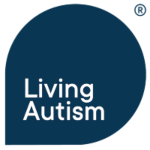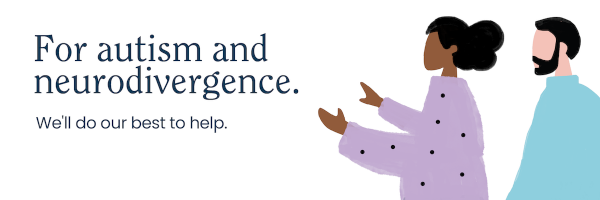Frequently Asked Questions
-
Over the past few years, legislation has been passed and guidance has been published to assist people with an autistic spectrum condition get the diagnosis and support they need. However, many people are still unaware of their autism rights and they do not know when they are given misinformation. This article gives some basic information for both children and adults with autism on their rights. For the purposes of this article the word ‘autism’ will encompass autistic spectrum disorders, autistic spectrum conditions, Asperger’s Syndrome and PDD-NOS...more
-
If you believe that either you or a member of your family might be on the autistic spectrum and you need professional or clinical support, you will need to obtain a diagnosis. Your GP will be able to make a referral to a clinical psychologist or a paediatrician who will carry out an assessment.
The GP will need some information from you. Here are some suggestions of information that will be helpful to them in deciding on the next step. Consider the questions below for the person needing the diagnosis – either you or your relative...more
-
Laying the right foundations upon which to build successful interactions with a person with autism is key. Read the article by Geoff Evans on how to build a good foundation and some of the basics to look out for and what to think about when providing a supportive environment.
To read the article click here
-
We often receive enquiries from people who wonder if their family member or friend might have Asperger’s Syndrome or are somewhere on the autism spectrum. Asperger’s Syndrome has been a term used during the past 40 years or so to describe individuals who have autism characteristics and who are of normal or above normal intelligence. In 2013, the DSM 5, an American diagnostic manual, got rid of the term Asperger’s Syndrome as a diagnosis on its own and included it in the wider term for the autism spectrum – Autism Spectrum Disorder.
Whatever the term, the fact is that there are individuals who are very competent in their chosen course of study or work, but who struggle with social communication difficulties and the need for structure and routine. Of course, diagnoses need to be carried out by the appropriate professionals and no-one can give a diagnosis by proxy. Furthermore, every person with autism is an individual with their own wishes and aspirations and their own specific needs. However, we can provide you with some basic characteristics to look out for and some basic strategies that have been shown to be successful in supporting people with autism taken from our team’s experiences over the past 20 years...more
-
Children who have special educational needs are entitled to support. From September 2014 they will be entitled to support based upon the Children and Families Act 2014 up to the age of 25. They are also entitled to support based upon the Care Act 2014 from the age of 18 onwards when the Act comes into force in April 2015.
For the full article on how to obtain support click here
-
In April 2013 the Personal Independence Payment (PIP) replaced the Disability Living Allowance (DLA) for most people.
There are two parts to PIP: Care Component and Mobility Component
Care Component (per week) Mobility Component (per week)
Daily living Component:
Standard: £55.10 £21.80
Enhanced: £82.30 £57.45
To be eligible for the Care Component you need to:
· Be over 16 years of age
· Stopped getting DLA after the age of 65
· Make a new claim to DLA within 12 months of it stopping
OR
· You need help looking after yourself eg washing, dressing, eating, using the toilet, communicating
· You need supervision to avoid putting yourself or others in danger
· You can’t prepare a cooked main meal
· You need someone with you when you are on dialysis.
For the full article including other benefits click here
-
DSM stands for Diagnostic and Statistical Manual of Mental disorders and the proposal by the DSM-5 committee to merge all Autistic Spectrum Disorders including Asperger Syndrome into a single category has been agreed and comes into effect in May 2013.
Getting a diagnosis of Autism as opposed to Asperger’s may lead to different personal and social consequences. However, it was felt that the previous DSM-4 distinction between these two conditions has not informed or improved clinical practice in terms of selection of treatment, assessment and prognosis. This fact appears to be one of the main reasons that led the DSM committee to suggest the merger of Asperger’s and Autism.
For the full article click here.
-
People with autism present a wide range of characteristics and severity of difficulties, as well as particular skills. Some are seemingly able to carry on with every-day life while others can experience disabilities which make it very difficult to take part in every-day experiences. Because of the range of disorders which display similar characteristics of difficulties with social communication skills and imagination, the conditions are collectively known as 'Autistic Spectrum Disorder'. In this article, we also talk about autistic spectrum conditions, to highlight the fact that the differences in experiencing the world can be both disabling and also empowering through special skills and qualities.
For the full article click here
-
Are you wondering about a diagnosis for autism? If you feel that you or a family member might have an autistic spectrum condition it is important that you consider getting a diagnosis. For children, a diagnosis could mean early intervention support which has been shown to make a positive difference. For adults, a diagnosis can be a positive experience, making sense of difficulties they have been experiencing especially in social communication, rigid and repetitive behaviour and sensory differences...more

